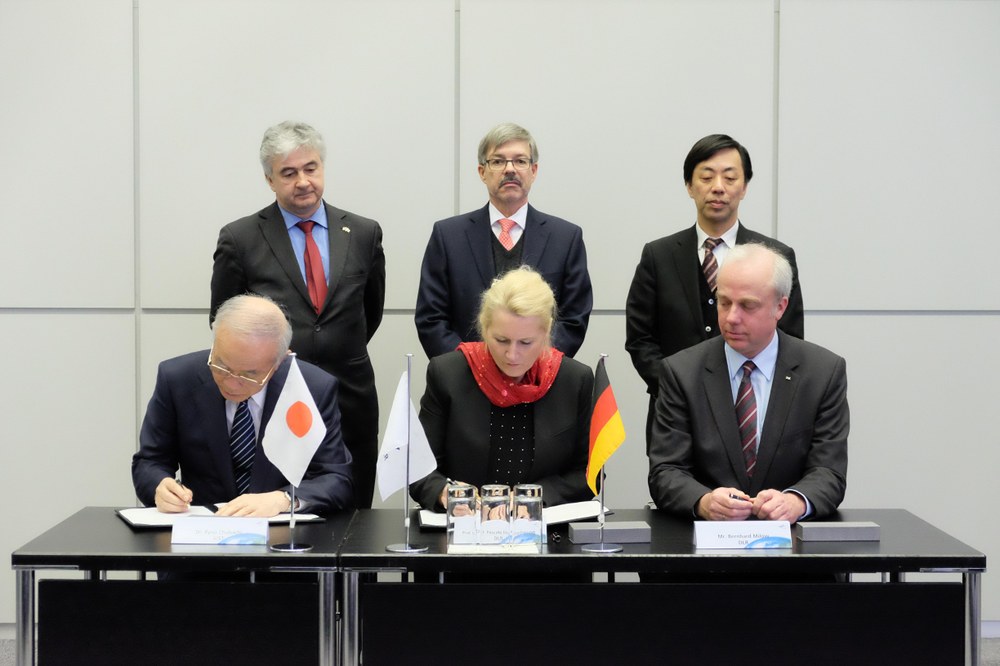DLR and Japanese research organisation AIST agree on cooperation on energy research


In Germany and Japan, governments have set ambitious goals for transforming the energy system and supporting environmental protection. Renewable energies are increasingly being developed and efficiency measures strengthened. In both countries, energy research is playing a major role. In this context, the scientific collaboration between the German Aerospace Center (Deutsches Zentrum für Luft- und Raumfahrt; DLR) and the Japanese National Institute of Advanced Industrial Science and Technology (AIST) is expanded. Like DLR, AIST carries out application-orientated research and is a state-funded research organisation.
Similar interests in the high technology sector
On 19 March 2017, at the CeBIT IT trade fair, Professor Pascale Ehrenfreund, Chair of the DLR Executive Board, Bernhard Milow, Programme Director of DLR Energy Research and Ryoji Chubachi, president of AIST, signed a Memorandum of Understanding (MoU) in the presence of representatives of the German and Japanese ministries. Both partners are globally renowned in their fields and, through their joint research, aim to strengthen international collaboration and boost technology development.
"German-Japanese research cooperation can look back on a long and successful history," stated Professor Ehrenfreud. "With the cooperation in energy research agreed today, we can jointly make a significant contribution to the development of sustainable energy systems. For example, we are working on expanding the scope of application of energy storage systems and converting waste heat directly into usable power. AIST is an excellent partner for this."
Collaboration on thermoelectric energy converters and battery research
First on the collaborative agenda is efficient thermoelectric energy converters and battery research. Thermoelectric generators convert waste heat from combustion or industrial processes into electrical energy. By doing so they can help reduce fuel consumption in vehicles and make waste heat usable once again. In the battery research area, powerful lithium-ion batteries that can work reliably even at low temperatures are expected to be collaboratively developed. This is important for batteries in electric vehicles that still need to operate in winter. The agreement includes the possibility of extending the cooperation between the two partners to other common areas.
